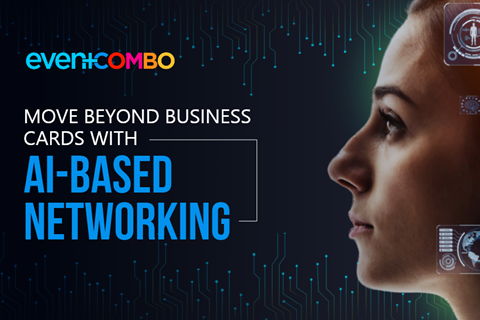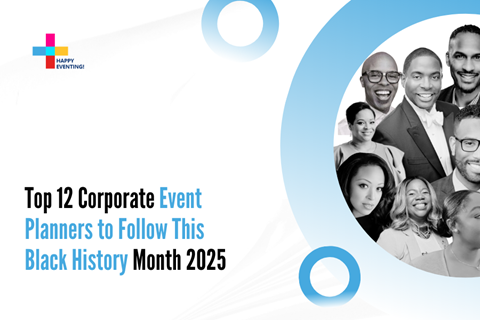

Ensuring that event registration runs smoothly entails more than just making it easy for attendees – there's a lot happening behind the scenes. As event planners, your primary focus is on creating a registration form that functions seamlessly. However, it's far from a walk in the park.
There's a delicate balancing act involved in juggling various elements, such as determining the most effective data fields, choosing between autofill and manual entry, ensuring that autofill respects data privacy, incorporating dynamic fields for a personalized touch, and the list goes on. It's like solving a puzzle, but the goal remains the same: providing attendees with a seamless experience while efficiently and securely gathering the necessary information.
Understanding Event Registrations
The significance of streamlined registration processes cannot be overstated in the landscape of event management. These processes serve as the cornerstone upon which the entire event experience is built. By simplifying the registration journey, organizers can effectively set the tone for what attendees can expect throughout the event.
Significance of Streamlined Registration Processes
Let's take a moment to consider this question honestly: as a prospective attendee, how much does the event registration process affect your decision? The answer is likely, quite significantly.
A streamlined registration process plays a crucial role in minimizing barriers to entry. It eliminates unnecessary hurdles and complexities that could discourage potential attendees from signing up. This accessibility ensures that everyone who wishes to participate can do so easily, and even those who may be hesitant initially can have the impression of the event cast upon them.
Furthermore, a streamlined registration process significantly enhances attendee satisfaction. By providing a smooth and efficient registration experience, organizers can leave a positive impression and build credibility with attendees right from the start.
Additionally, it's essential for organizers to gather valuable data during registration. In today's age of personalization, where tailoring experiences to individual preferences is paramount, strategically collecting data through the registration page is crucial. This data provides insights into attendee demographics, preferences, and interests, laying the foundation for better event planning and personalization to truly enhance the attendee experience.
Goals and Objectives of Registration Management
The overarching goal of registration management is to create an experience that is both seamless and engaging for attendees. Efficient registration management aims to achieve several key objectives:
Best Practices for Event Registration Management
Let's simplify event registration! Here are some tips to achieve just that:
1. Simplifying Registration Forms
Simplifying registration forms involves optimizing, or rather minimizing, the number of fields to include only essential information necessary for event planning. When the registration form is designed to be user-friendly, it saves time – nobody likes being bogged down by endless fields. By reducing unnecessary fields, organizers can prevent registration fatigue, a major turn-off for registrants that can lead to lower completion rates.
Additionally, implementing progressive profiling techniques allows organizers to gather additional details over time. Instead of bombarding attendees with a lengthy form upfront, progressive profiling enables the collection of supplementary information gradually, based on attendee interactions and engagement with the event.
2. Offering Multiple Registration Channels
Diversifying registration channels is essential to catering to the diverse preferences of potential attendees. Providing options for online, mobile, on-site, and phone registration ensures accessibility for individuals with varying technological capabilities and preferences. Online registration platforms offer convenience and flexibility, allowing attendees to sign up from anywhere with an internet connection. Mobile registration apps further enhance accessibility, catering to the growing trend of mobile-first interactions. On-site registration provides a last-minute option for spontaneous attendees or those facing technical challenges. Additionally, offering phone registration allows for personalized assistance and support, catering to individuals who prefer verbal communication.
3. Personalization and Customization
Personalizing the registration experience enhances attendee engagement and satisfaction and sets the tone for the event right from the beginning. Tailoring registration forms through dynamic content and conditional logic ensures that attendees receive relevant information and options based on their interests and past interactions with the event. Dynamically adjusting registration questions based on attendee demographics or previous event attendance, or incorporating conditional logic within the registration form itself, can create a more personalized and engaging experience. Moreover, offering customizable options, such as session preferences or networking interests, allows attendees to tailor their event experience according to their preferences, fostering a sense of ownership and investment in the event.
4. Sending Out the Right Message
Clear and effective communication is vital throughout the registration process to ensure attendees have all the information they need. Providing comprehensive details about the event, such as the agenda, venue specifics, and instructions for accessing the event, is crucial for alleviating any potential confusion or uncertainty. It's important to note that sometimes registration page designs prioritize aesthetics over clear messaging, which can inadvertently lead to confusion, especially given the diminishing attention span of individuals. Therefore, striking a balance between visual appeal and informational clarity is essential for a successful registration experience.
5. Data Security and Compliance
Simplifying event registration is crucial for ensuring a smooth and hassle-free experience for attendees. One key aspect to focus on is prioritizing data security and compliance with regulations such as GDPR, CCPA, or PIPEDA. Implementing robust measures for secure payment processing, encryption, and data protection helps mitigate the risk of data breaches and unauthorized access. Informing your invitees about these measures can increase their trust and confidence in your event. Organizers must adhere to data privacy regulations and best practices to ensure that attendee data is handled responsibly and ethically. Research shows that 79% of US adults report being concerned about how companies use their data. By prioritizing data security and compliance, organizers demonstrate their commitment to protecting attendee privacy and increasing brand credibility.
When designing an event registration page, it's crucial to prioritize the attendee experience. While a visually appealing design is important, factors like loading time, multilingual support, and accessibility also play a significant role. Put yourself in the shoes of your attendees and consider how they would perceive the registration process. A fast-loading page ensures a seamless experience, while multilingual support or translation options cater to a diverse audience, enhancing inclusivity. Additionally, ensuring accessibility features such as screen reader compatibility and keyboard navigation can make the registration process more user-friendly for all attendees.
By focusing on these aspects, you can create a stellar registration page that meets the needs and expectations of your audience, ultimately driving higher engagement and participation in your event.
Resolve your event registration woes effortlessly. Connect with our experts today - https://bit.ly/3R9bkuP

Networking is one of the most valuable ways to discover boundless opportunities and for 77.7% of business professionals , in-person conferences open a greater scope to make rewarding connections.

When planning a healthcare fair, the goal goes beyond booking a venue and sending out invites. You’re creating an event that brings together healthcare professionals, researchers, and exhibitors, all seeking value and...

Diversity and inclusion are at the heart of the events industry, where planners are focused on creating experiences that bring together people from all walks of life.